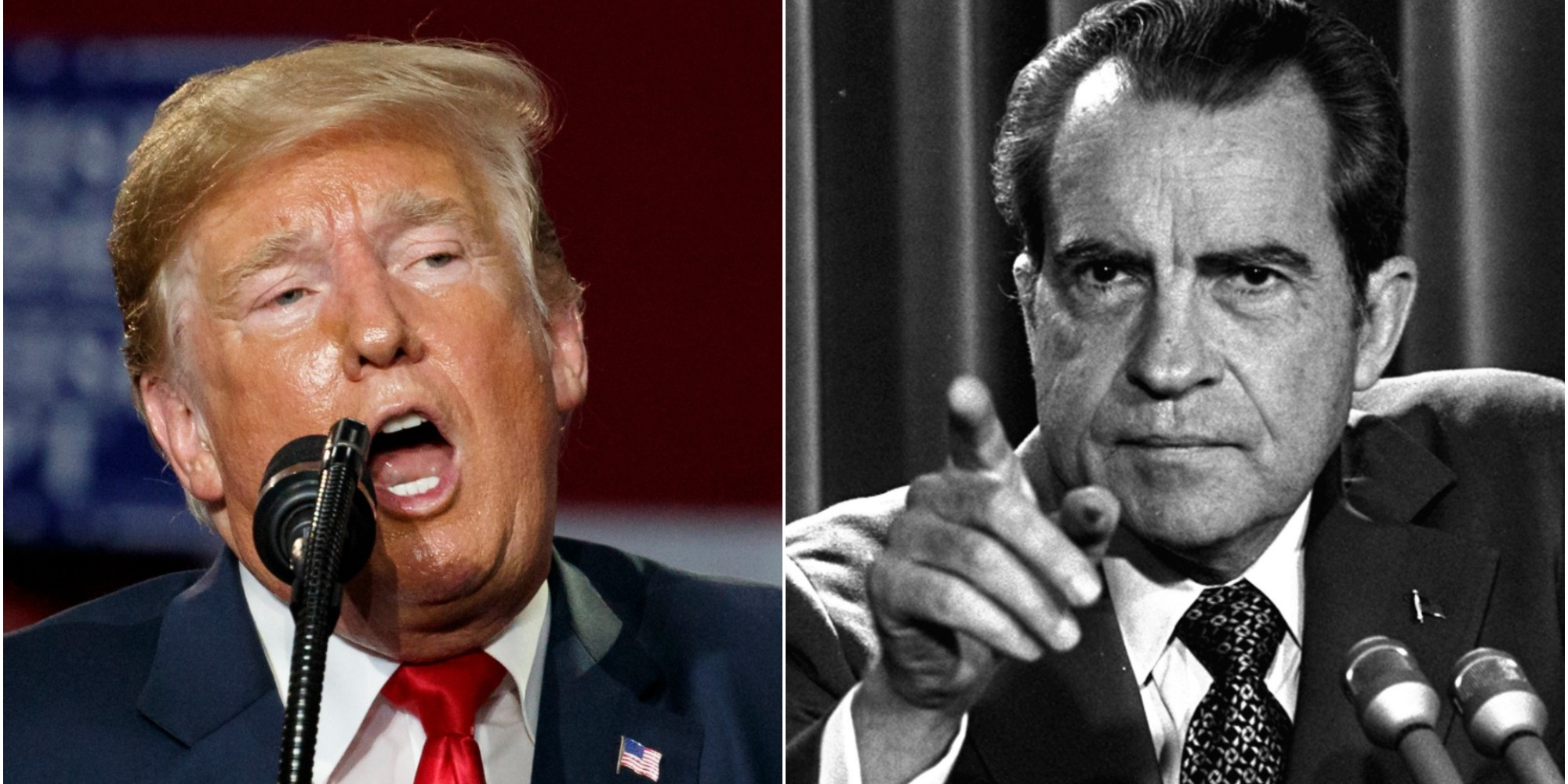- Justice Department lawyers on Tuesday argued that House Democrats should not be able to obtain grand jury material redacted from the Mueller report as part of their impeachment probe into President Donald Trump, according to CNN, NBC News, and The Washington Post.
- They argued that a landmark 1974 ruling that ordered the release of grand jury material, which paved the way to President Richard Nixon’s impeachment, was wrong.
- Their legal argument reportedly stunned Washington, DC judge Beryl Howell, who said as the lawyers submitted their argument: “Wow, OK … the department is taking extraordinary positions in this case.”
- Visit Business Insider’s homepage for more stories.
Justice Department lawyers seeking to shield President Donald Trump from an impeachment investigation have argued that a judge’s landmark decision in 1974 to release information vital to the Watergate probe is no longer relevant, according to media reports.
The Democrat-led House Judiciary Committee is currently seeking to acquire secret grand jury evidence that had been redacted from Special Counsel Robert Mueller’s Russia investigation as part of their impeachment inquiry into Trump.
DOJ lawyers sought to invalidate that request for documents on Tuesday by claiming that a key legal ruling from 1974, which paved the way for the House to prepare impeachment articles against President Richard Nixon, should no longer apply, the outlets said.
The argument reportedly stunned Judge Beryl Howell, the chief district judge for Washington, DC.
"Wow, OK," Howell said as the legal team submitted its argument in court, according to NBC News and Washington Post reporter Spencer Hsu. "As I said, the department is taking extraordinary positions in this case."

The 45-year-old ruling the DOJ is trying to invalidate
The dispute centers on a 1974 landmark ruling by then-chief judge John Sirica, which led to Watergate grand jury evidence - which were given behind closed doors - being handed over to House lawmakers for their impeachment probe into Nixon.
At the time, Congress was investigating whether Nixon had committed impeachable crimes related to a break-in at Democratic party offices in the Watergate complex, in perhaps the most famous political scandal in US history.
The evidence from the grand jury became known as the "Watergate roadmap," and was a vital part of the evidence that led to Nixon's resignation in August 1974 after he learned that Congress was preparing articles of impeachment.

The Justice Department's attorneys claimed Tuesday that if the case were to be heard today, the result would be different.
They argued that the House's impeachment case is not a judicial proceeding because no formal impeachment inquiry had been declared, and so one of the few grounds on which secret grand jury material can be obtained does not apply, NBC News said.
"If that case came today a different result would be obtained," DOJ attorney Elizabeth Shapiro told the court, per NBC News. "If that same situation would be presented today, we would not be able to do the same thing."
Judge Howell has not yet ruled on the House Justice Committee's request.
The House Justice Committee and Justice Department have not yet responded to Business Insider's request for comment.

